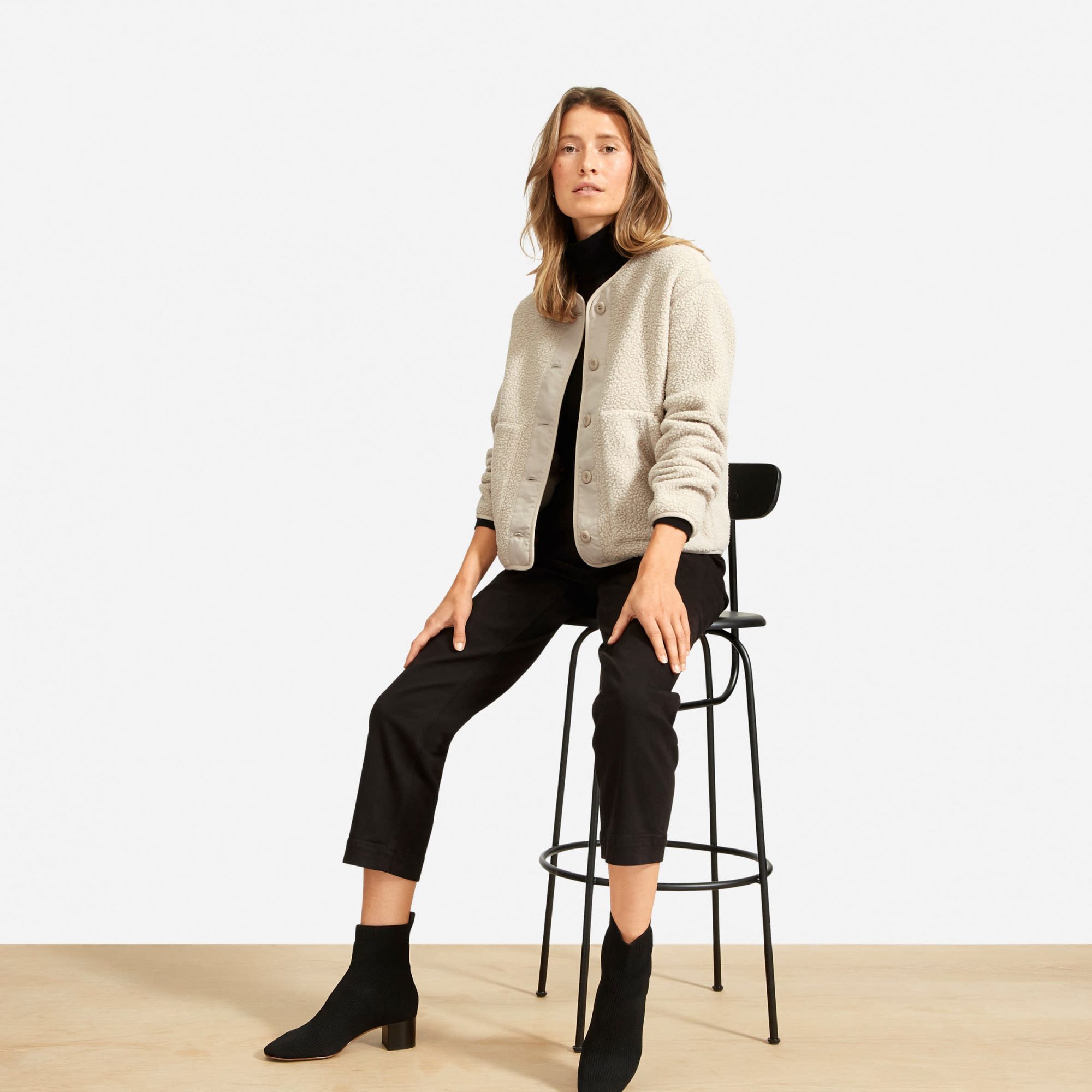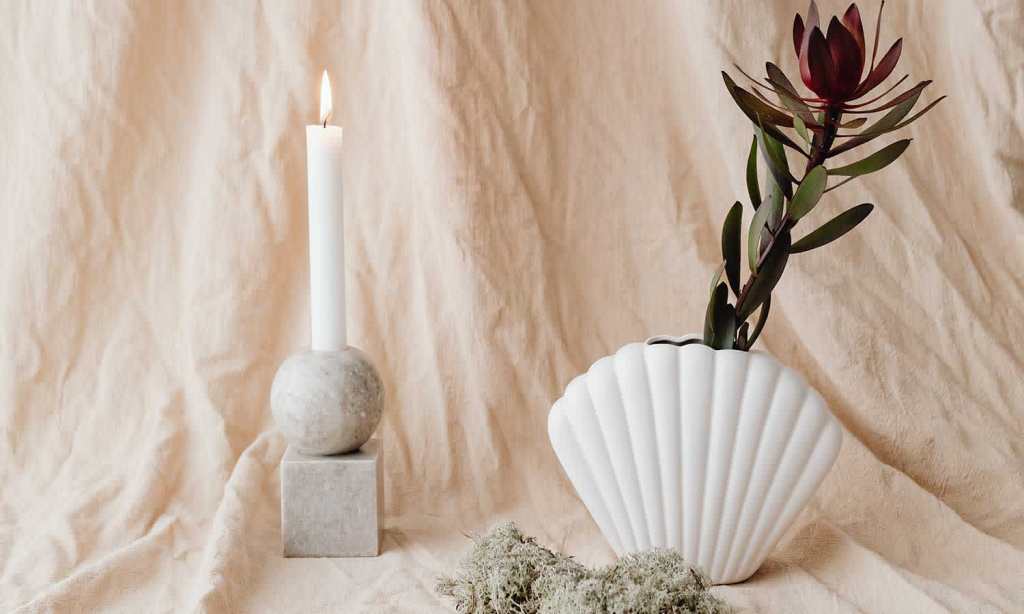Every year, up to 17 billion tons of unwanted textiles end up in landfill, 85-95% of which are able to be recycled in some way. The Australian fashion industry alone contributes between 500,000 and 800,000 tons of unwanted clothing to landfill each year, and this doesn’t even account for textiles relating to furniture and building.
While we’ll continue to accrue clothes and furniture (sustainably where possible), we can work to make better, more informed choices that put the planet first — whether that’s shopping for second-hand decor or recycling fabrics the right way.
Another way we can do better in our purchases? Prioritising sustainable textiles over those with a much larger impact. Below, we’re letting you in on those emerging new fabrics for clothing and furniture, so you can make more informed choices next time you add to cart.
Cork
A material you can expect to see a lot more in 2021 and beyond, cork is a wondrously sustainable textile that’s making its way onto clothing and furniture. Koala launched Australia’s very first cork sofa recently, (The Latch is giving you the chance to win the cork sofa!) and the piece is receiving praise for its soft-to-the-touch feeling and sustainable durability.
Cork has been traditionally harvested in the same ways for years, and this has never changed. Cork comes from the bark of cork oak trees that grow in Mediterranean Europe and North Africa. Instead of cutting the tree down, cork is made from the bark that is skillfully stripped away from the trunk, leaving the tree intact. Not only does this preserve the forest, but as the trees re-grow the bark, they then draw out five times more carbon from the atmosphere. The tree will grow back for another nine to 12 years before its bark is harvested again.
Win a Koala Cork Sofa and Ottoman Worth $2,800 With The Latch
Bio fleece
Fleece is problematic, with the textile shelling thousands and millions of tiny plastic fibres with a lifetime of washing. Bio fleece, or more specifically, Primaloft Bio Fleece, is a fabric produced from 100% post-consumer recycled fibres that can break down and return to natural minerals at the end of its lifecycle, ultimately lessening the overall environmental impact.
Primaloft Bio Fleece is a first-of-its-kind textile from Kathmandu, and it makes up a new range from the brand of pullovers, hoodies, and other warming layers, with each garment repurposing a significant number of plastic bottles. The Pelorus pullover, for example, is comprised of 15 recycled plastic bottles.
Recycled Polyester
Plastic bottles are a huge problem for the environment, with 80% of plastic water bottles ending up in landfill, taking up to 1,000 years for each one to decompose. The plastic boom in the ’50s led us here, but thankfully, there is one thing that can be done about it now to repurpose all that plastic.
Polyester has a bad reputation, but recycled polyester is something of a wonder. Sustainable apparel brands like Everlane are taking discarded plastic bottles and turning them into threads for new clothing for its outerwear, jumpers, puffers and shoes. The resulting fabric provides durable warmth and insulation.

Read more stories from The Latch and subscribe to our email newsletter.







